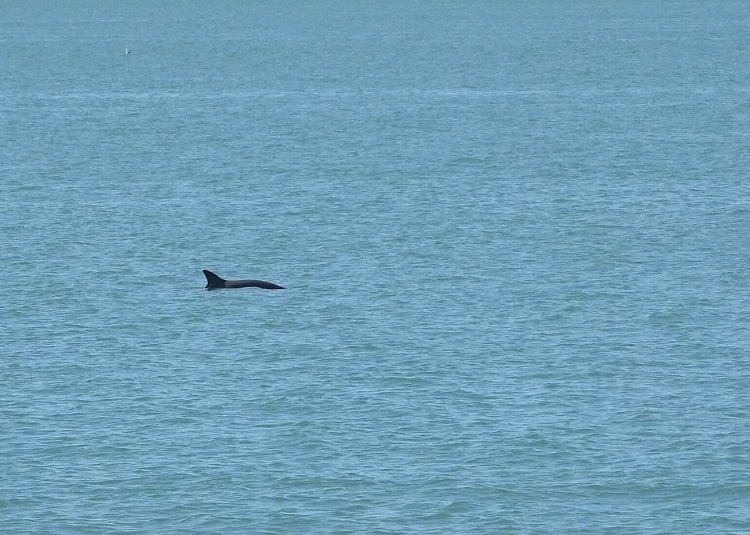Report: Only Ten Vaquita Left
Scientists announced last week that only 10 vaquita porpoises likely remain in the world and that the animal’s extinction is virtually assured without bold and immediate action.
The vaquita, the world’s smallest and most endangered cetacean, is found only in Mexico’s northern Gulf of California. The release of the new vaquita estimate came two days after reports of the first possible vaquita mortality of 2019 by Sea Shepherd. Sea Shepherd has been present in the Upper Gulf of California since 2015. In that time, the organization's crews have documented the entanglement of 36 marine mammals trapped in illegal gillnets. Nine were cetaceans, and only one was able to be saved – a juvenile humpback whale in early 2016. Although Sea Shepherd has found several dead vaquitas, confirmed by scientists to have been killed from entanglement, this is the first time one has potentially been discovered still trapped in a gillnet.
The announcement of vaquita numbers from the International Committee for the Recovery of the Vaquita (CIRVA) also calls on Mexico President Andres Manuel Lopez Obrador to end all gillnet fishing and adopt a “zero tolerance” policy of enforcement in the vaquita’s small remaining habitat. CIRVA is an international team of scientific experts assembled in 1996 to assist in vaquita recovery efforts.
“One of Earth’s most incredible creatures is about to be wiped off the planet forever,” said Sarah Uhlemann, international program director at the Center for Biological Diversity. “Yet Mexico has only made paper promises to protect these porpoises from deadly nets, without enforcement on the water. Time is running out for President Lopez Obrador to stop all gillnet fishing and save the vaquita.”
The vaquita faces a single threat: entanglement in illegal gillnets set for shrimp and various fish species, including endangered totoaba. Totoaba swim bladders are illegally exported by organized criminal syndicates from Mexico to China, where they are highly valued for their perceived medicinal properties.
Despite efforts in Mexico to curb gillnet fishing of shrimp and other fish and efforts in China to reduce demand for totoaba, the vaquita’s population dropped 50 percent in 2018, leaving an estimate of around 10 remaining vaquita, with no more than 22 and perhaps as few as six.
“There is only the tiniest sliver of hope remaining for the vaquita,” said Kate O’Connell, marine wildlife consultant with the Animal Welfare Institute. “Mexico must act decisively to ensure that all gillnet fishing is brought to an end throughout the Upper Gulf. If the vaquita is not immediately protected from this deadly fishing gear, it will go extinct on President Lopez Obrador’s watch.”
In 2017, in the face of international pressure, Mexico banned the use of most gillnets within the vaquita’s range, but enforcement has been lacking. For example, during the 2018 illegal totoaba fishing season, nearly 400 active totoaba gillnets were documented in a small portion of the vaquita’s range, and gillnets continue to be found within the vaquita refuge. Recent violence against conservationists in the region has limited critically important net removal efforts, says the Animal Welfare Institute.
Despite the marine mammal’s alarming decline, CIRVA emphasized that the vaquita is not extinct and that recovery remains possible. They are still producing offspring, and the remaining animals are healthy, showing no signs of disease or malnutrition.

that matters most
Get the latest maritime news delivered to your inbox daily.
In 2018, a U.S. court temporarily banned the import of seafood caught with gillnets in vaquita habitat. This year, parties to the Convention on International Trade in Endangered Species of Wild Fauna and Flora (CITES) and the World Heritage Convention are considering additional conservation measures for the vaquita and totoaba.

